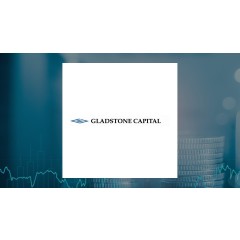
Main Street Capital (NYSE:MAIN – Get Free Report) and Gladstone Investment (NASDAQ:GAIN – Get Free Report) are both finance companies, but which is the better stock? We will compare the two companies based on the strength of their dividends, institutional ownership, analyst recommendations, profitability, valuation, earnings and risk.
Insider and Institutional Ownership
20.3% of Main Street Capital shares are held by institutional investors. Comparatively, 11.9% of Gladstone Investment shares are held by institutional investors. 4.0% of Main Street Capital shares are held by company insiders. Comparatively, 2.4% of Gladstone Investment shares are held by company insiders. Strong institutional ownership is an indication that large money managers, hedge funds and endowments believe a company is poised for long-term growth.
Get Main Street Capital alerts:
Dividends
Main Street Capital pays an annual dividend of $3.06 per share and has a dividend yield of 4.6%. Gladstone Investment pays an annual dividend of $0.96 per share and has a dividend yield of 6.9%. Main Street Capital pays out 50.4% of its earnings in the form of a dividend. Gladstone Investment pays out 44.2% of its earnings in the form of a dividend. Both companies have healthy payout ratios and should be able to cover their dividend payments with earnings for the next several years. Main Street Capital has raised its dividend for 4 consecutive years. Gladstone Investment is clearly the better dividend stock, given its higher yield and lower payout ratio.
Risk and Volatility
Main Street Capital has a beta of 0.88, indicating that its share price is 12% less volatile than the S&P 500. Comparatively, Gladstone Investment has a beta of 0.94, indicating that its share price is 6% less volatile than the S&P 500.
Analyst Ratings
This is a breakdown of current ratings for Main Street Capital and Gladstone Investment, as provided by MarketBeat.
Main Street Capital currently has a consensus price target of $61.20, suggesting a potential downside of 7.43%. Gladstone Investment has a consensus price target of $13.50, suggesting a potential downside of 3.64%. Given Gladstone Investment’s higher probable upside, analysts clearly believe Gladstone Investment is more favorable than Main Street Capital.
Profitability
This table compares Main Street Capital and Gladstone Investment’s net margins, return on equity and return on assets.
Valuation and Earnings
This table compares Main Street Capital and Gladstone Investment”s gross revenue, earnings per share (EPS) and valuation.
Main Street Capital has higher revenue and earnings than Gladstone Investment. Gladstone Investment is trading at a lower price-to-earnings ratio than Main Street Capital, indicating that it is currently the more affordable of the two stocks.
Summary
Main Street Capital beats Gladstone Investment on 14 of the 18 factors compared between the two stocks.
About Main Street Capital
(Get Free Report)
Main Street Capital Corporation is a business development company specializes in equity capital to lower middle market companies. The firm specializing in recapitalizations, management buyouts, refinancing, family estate planning, management buyouts, refinancing, industry consolidation, mature, later stage emerging growth. The firm also provides debt capital to middle market companies for acquisitions, management buyouts, growth financings, recapitalizations, and refinancing. The firm seeks to partner with entrepreneurs, business owners and management teams and generally provides “one stop” financing alternatives within its lower middle market portfolio. It prefers to invest in air freight and logistics, auto components, building products, chemicals, commercial services, computers, construction and engineering, consumer finance, consumer services, electronic equipment, energy equipment and services, financial services, health care equipment, health care providers, hotels, restaurants, and leisure, internet software and services, IT Services, machinery, oil, gas and consumable fuels, paper and forest products, professional and industrial services, road and rail, software, specialty retail, telecommunication, consumer discretionary, energy, materials, technology, and transportation. The firm typically invests in lower middle market companies generally with annual revenues between $10 million and $150 million. It prefers to invest in ranging between $5 million and $100 million in equity investment and enterprise value in ranging between $3 million and $20 million. The firm typically prefers to invest in the range of $5 million and $150 million per transaction in debt investment value and in the range of $3 million and $75 million in annual EBITDA in between $3 million and $25 million in lower middle market $5 million and $75 million in credit solution. The firm’s middle market debt investments are made in businesses that are generally larger in size than its lower middle market portfolio companies. It takes 5 percent minority and up to 50 percent majority equity investments. Main Street Capital Corporation was founded in 2007 and is based in Houston, Texas with an additional office in Chojnów, Poland.
About Gladstone Investment
(Get Free Report)
Gladstone Investment Corporation is business development company, specializes in lower middle market, mature stage, buyouts; refinancing existing debt; senior debt securities such as senior loans, senior term loans, lines of credit, and senior notes; senior subordinated debt securities such as senior subordinated loans and senior subordinated notes; junior subordinated debt securities such as subordinated notes and mezzanine loans; limited liability company interests, and warrants or options. The fund does not invest in start-ups. The fund seeks to invest in manufacturing, consumer products and business/consumer services sector. It seeks to invest in small and mid-sized companies based in the United States. The fund prefers to make debt investments between $5 million and $30 million and equity investments between $10 million and $40 million in companies. The fund seeks to invest in companies with revenue between $20 million and $100 million. The fund invests in companies with EBITDA from $3 million to $20 million. It seeks minority equity ownership and prefers to hold a board seat in its portfolio companies. It also prefers to take majority stake in its portfolio companies. The fund typically holds the investments for seven years and exits via sale or recapitalization, initial public offering, or sale to third party.



